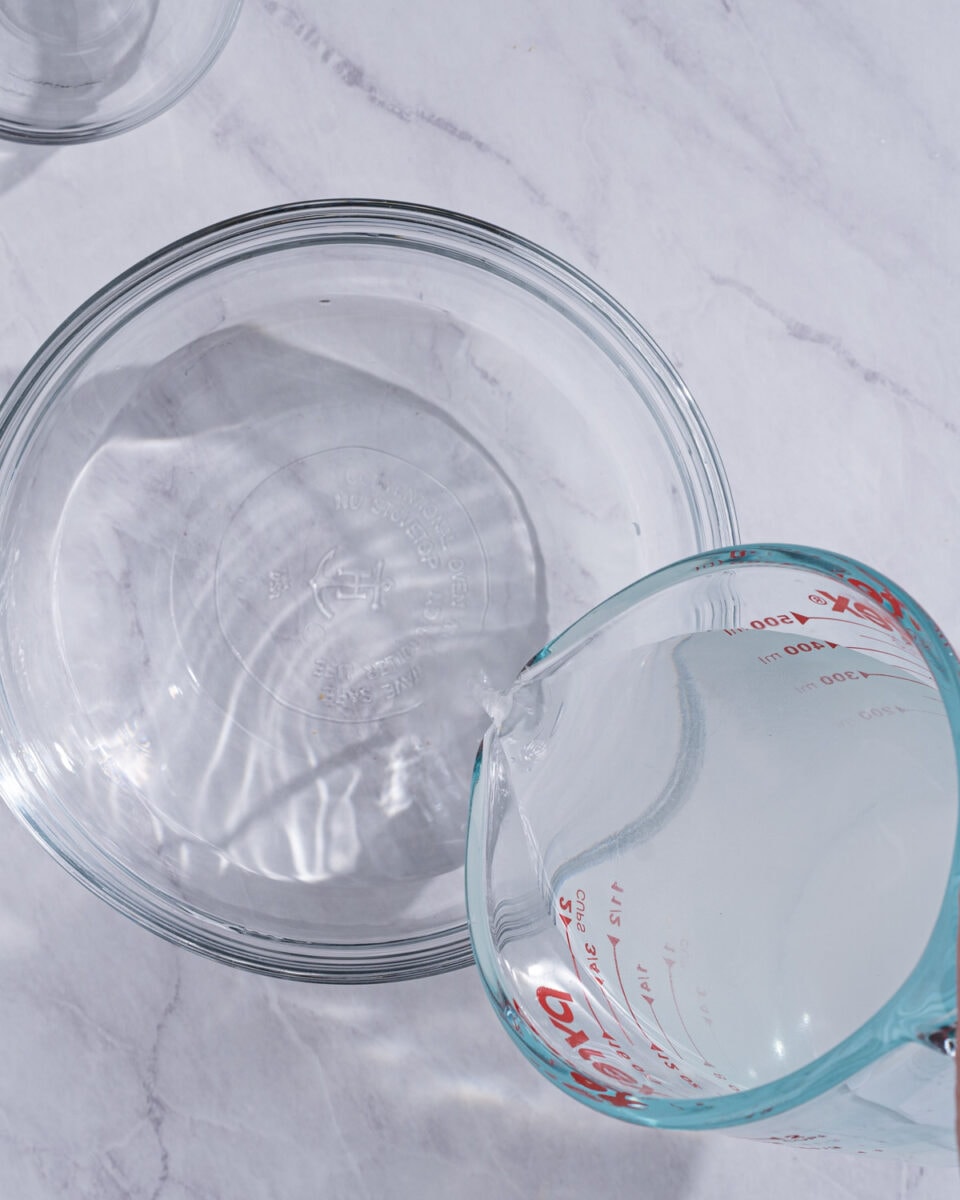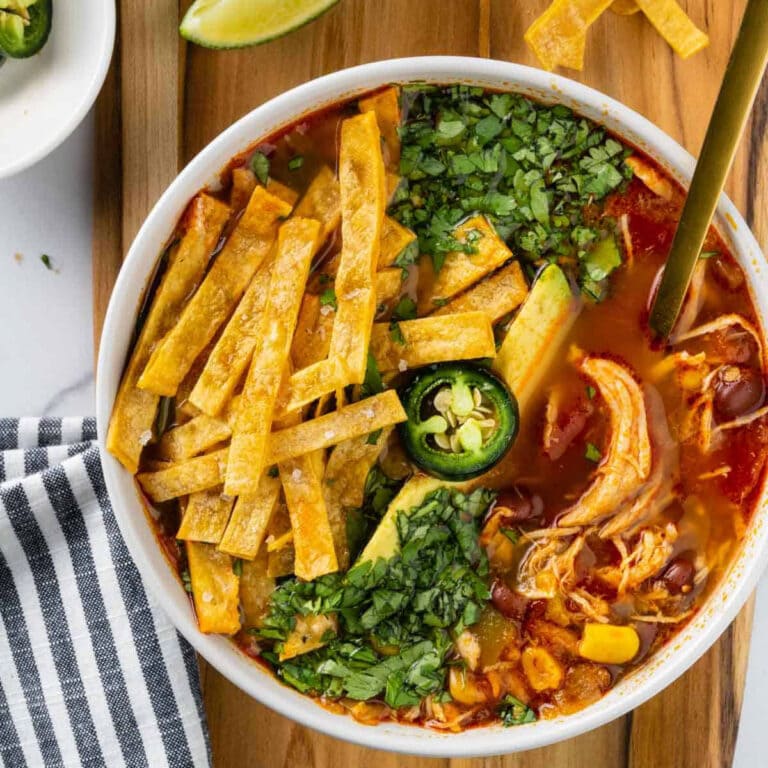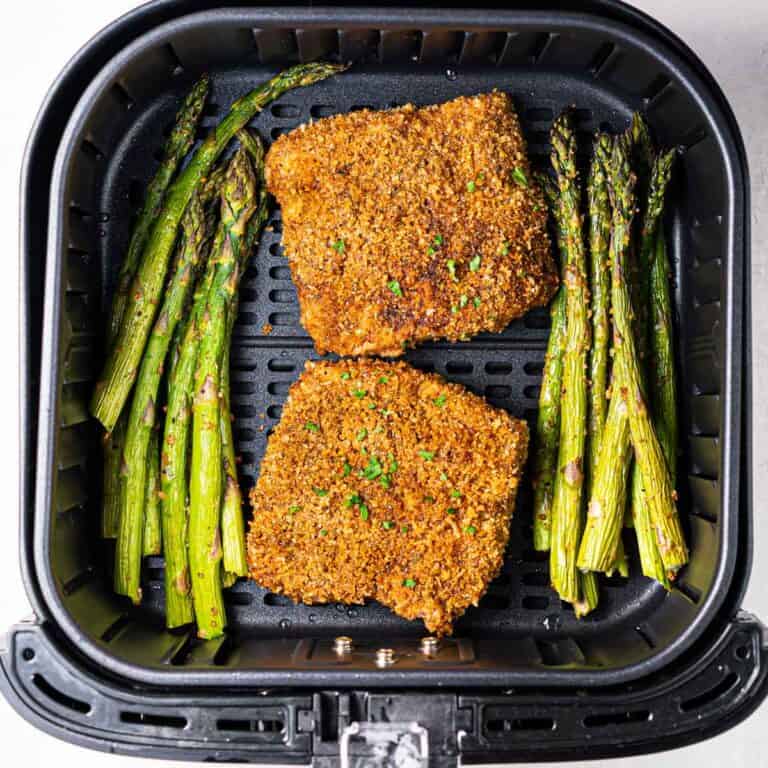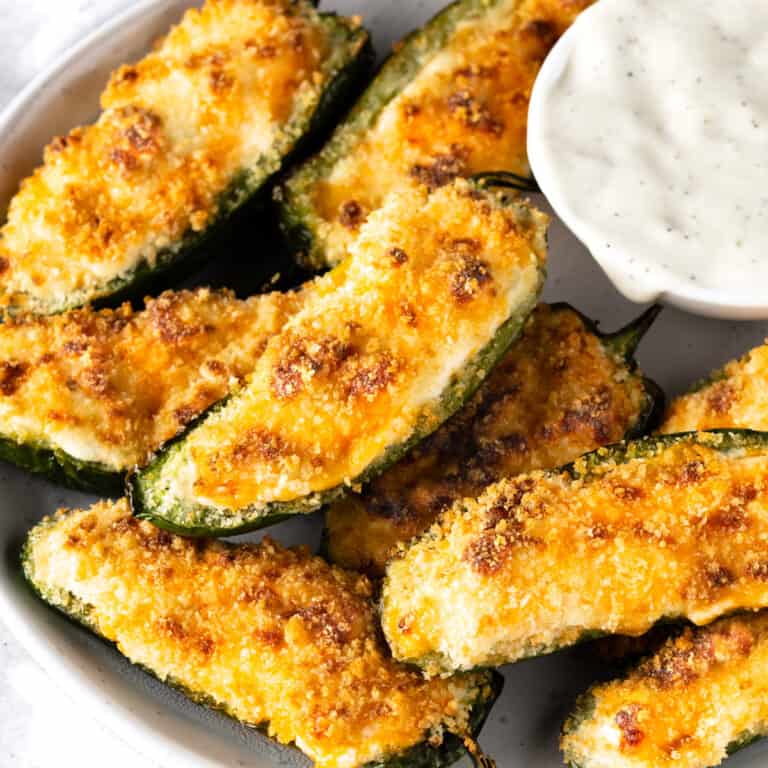Vietnamese Pickled Carrots and Daikon (Đồ Chua)
Pickled Carrots and Daikon, known as “đồ chua” in Vietnamese, is a popular condiment and side dish in Vietnamese cuisine. This zesty and crunchy side dish elevates any meal. Using 5 ingredients and a few simple steps, you can have the best homemade pickled carrots and daikon.
It goes with so many different dishes but I especially love it in banh mi sandwiches or as a side for grilled meats.

What is it?
Made of julienned carrots and daikon (also known as white radish) in a brine solution of vinegar, sugar, water, and salt. These pickled vegetables are sweet, tangy, and slightly crunchy, which provides a refreshing contrast to the savory and rich flavors of Vietnamese dishes. They add a burst of flavor and texture to banh mi sandwiches, rice and noodle bowls, spring rolls, and more.
Equipment Needed
Ingredients

- Carrot: about 1 large carrot or 3-4 medium carrots.
- Daikon Radish: when selecting the daikon, choose firm, unblemished roots with smooth skin. Look for a bright white color and a fresh, earthy aroma to ensure the best quality.
- White Vinegar: used to pickle the veggies.
- Water: use hot water to dissolve the sugar and salt. Heat the water in the microwave or stove. It is important to let the liquid cool down completely before adding the veggies.
- Sugar: use between ½ to ⅔ cups of sugar. Some prefer it sweeter while others prefer it sour. Adjust to your personal preference.
- Salt: to balance out the sweetness and tanginess.
Please scroll ⬇️ to the recipe card to see the full ingredient amounts and instructions.
Directions
Step 1: Heat the water. Stir in the sugar, salt, and vinegar until dissolved. Let it cool completely.


Step 2: Cut the carrots and daikon into julienne pieces.


Step 3: Add the carrots, and daikon to the pickling mixture. Add more water, if needed, so all the vegetables are completely submerged.

Tips for the BEST Pickled Carrots and Daikon
- Use Fresh Vegetables: Start with fresh, crisp carrots and daikon. The freshness of the vegetables will contribute to the crunchiness of the pickles.
- Uniform Cutting: Try to julienne the carrots and daikon as evenly as possible. Uniformly cut vegetables will pickle more evenly and provide a consistent texture.
- Salt Correctly: Be mindful of the salt you add to the brine. Too much salt can overpower the sweetness and tanginess of the pickles. A pinch of salt is usually sufficient to enhance the flavors.
- Balance Sweetness and Tanginess: Adjust the ratio of sugar to vinegar to suit your taste. Some people prefer a sweeter pickling liquid, while others prefer it to be more tangy. It’s all about finding the right balance for your palate. Do a taste test before adding the veggies in.

How to store it
Store the pickles in a clean, airtight container in the refrigerator. They will keep for several weeks when stored properly.
If you make multiple batches of pickles with different ingredients or flavor variations, be sure to label and date your containers. This will help you keep track of their freshness.
While homemade pickles can last for a while in the refrigerator, they are best enjoyed within the first few weeks when their flavors and textures are at their peak.
RECIPE

Vietnamese Carrot and Daikon Pickles (Đồ Chua)
Equipment
- Vegetable Peeler
- Mandoline Slicer
- Knife
- Mixing Bowl
- Measuring Spoons
Ingredients
- 2 cups carrot
- 2 cups daikon radish
- 2 cups white vinegar
- 2 cups hot water
- ½ cup sugar (between ½-⅔ cups, to taste)
- 2 teaspoon salt
Instructions
- In a large microwave-safe bowl, microwave the water for 1-2 minutes until hot. Stir in the sugar, salt, and vinegar until dissolved. (Do a taste test to see if it needs any more seasoning). Set it aside and let it cool down.
- Use a mandoline slicer or a knife, cut the carrots and daikon into julienne pieces.
- Once the pickling juice mixture is cool, add the carrots, and daikon. Add more water, if needed, so all the vegetables are completely submerged.







Super easy and tasty. My husband thought I bought it from the local banh mi bakery lol. I like that that the vegetables stay crisp for a longer time than the bakery version.
Made it over the weekend. It tastes so fresh and crisp when making it at home. I used it for homemade banh mi.